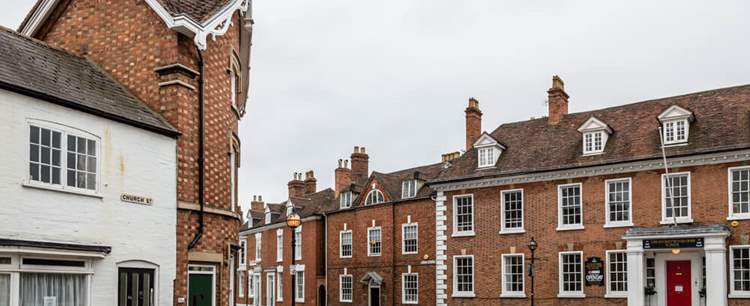Cast your eyes along practically any high street in the UK, and you are likely to see a row of shops with residential flats above.
Have you ever wondered how these buildings are insured? After all, the commercial premises at street level are clearly used differently to the residential units above – and one of the first lessons of property insurance is that the policy must reflect the use to which the building is put.
It is a situation that calls for aptly named mixed commercial and residential building insurance.
What Is Mixed Commercial And Residential Building Insurance?
The residential flat above a retail shop is probably the most common, but by no means the only example of this type of configuration of properties. Other possibilities include:
- an office – such as an estate agent, a doctors’ surgery or solicitors offices – on the ground floor and a flat or flats above;
- a pub on the ground floor, with living accommodation for the landlord or bed and breakfast guests upstairs;
- uses of the different types of property according to tenure, such as owner-occupied commercial premises at street level and let accommodation above – or an owner-occupied flat above a shop or office that is leased by tenants.
It is possible, of course, to insure each of the premises separately – standard home insurance for any owner-occupied accommodation, commercial property insurance for a shop or office, and landlord insurance for any part of the property that is let. But specialist mixed commercial and residential building insurance keeps the whole of the cover under a single, unified policy.
Such a combined use commercial and residential building insurance policy is also likely to be considerably cheaper than insuring each part of the property separately – in much the same way that combined buildings and contents insurance is typically cheaper than separate policies for each class of risk.
What Does Mixed Commercial And Residential Building Insurance Cover?
The Building
The entire building – including the parts in both commercial and residential use, whether owner-occupied or let – need to be protected against such perils as fire or explosions, storm damage and flooding, which may result in its total loss. The total building sum insured, therefore, typically provides cover for complete reconstruction in the event of a major disaster.
The Contents
Any contents you own also need the protection of insurance to cover repair or replacement in the event of theft, loss or damage. If you are the owner-occupier, this includes all your belongings and possessions; if you are the landlord, it includes the contents you own – and might also extend to cover against malicious damage committed by your tenants.
Property Owner’s Liability Insurance
As the owner of commercial premises, you may be held liable for injuries or damage to the property of your customers, visitors, neighbours and members of the public. As a landlord, you also have responsibilities and obligations to safeguard your tenants against injury and damage to their property.
Compensation For Loss Of Rental Income
Mixed commercial and residential building insurance may also provide compensation for rental income lost following an insured event which leaves any part of the building temporarily uninhabitable or impossible to let.
At UKinsuranceNET, we are specialists in arranging all types of property insurance – including insurance for landlords and owners of mixed commercial and residential buildings.
Given the relative complexities involved in obtaining cover for the latter, why not contact us today on 01325 346 328 quoting reference WS1 to see how we can help with a mixed commercial and residential building insurance quote.
Further reading: Mixed commercial and residential building insurance explained.







